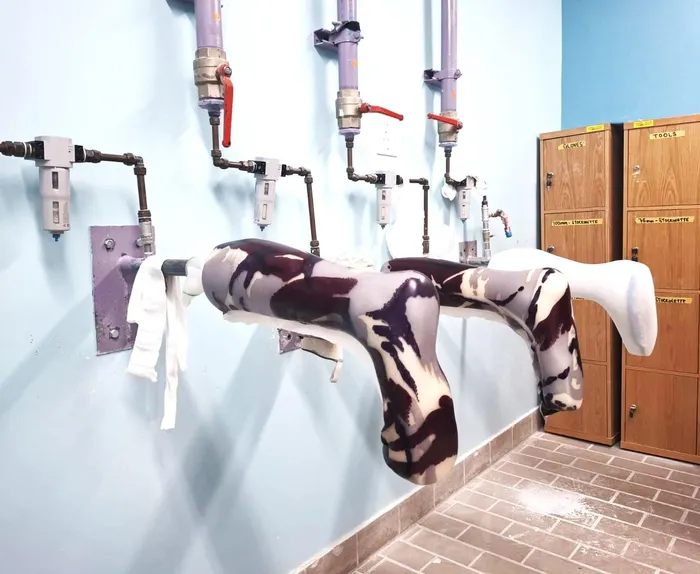A prosthetic project started in the wake of a natural disaster a decade ago is getting a refresh as a small team from the UVic-based Victoria Hand Project prepares to return to Nepal.
The Victoria Hand Project harnesses 3D printing technology to create life-altering prosthetics to empower individuals worldwide, particularly where accessing prosthetics is challenging. By offering affordable and sustainable solutions, they restore independence, hope, and dignity to those who have lost mobility due to limb loss.
Started in 2014 as a research lab at the University of Victoria, the project’s first mission in Guatemala provided 3D-printed hands. Their prosthetics have developed over the years, both to expand in usability and from the hand to beyond the elbow, benefitting more than 400 amputees in 11 countries.
The team travels to places in need, setting up clinics with the hardware, software and training to create the needed prosthetics on site.
The need in Nepal became apparent after the April 2015 earthquake. The 7.8-magnitude earthquake killed 8,962 people and injured 21,952 in Nepal, India, China and Bangladesh. A major aftershock shook the region a month later.
The Victoria Hand Project set up a pilot later in the year in Kathmandu, the largest city, located 85 kilometres southeast of the earthquake’s epicentre.
Michael Peirone, then a student, was among those who travelled to Nepal in 2016. Shortly after the earthquake that made worldwide news, it was his first co-op opportunity to travel with the Victoria Hand Project.
“Nepal being very rural and mountainous, it can be very difficult for people to access prosthetic care or health care in general,” said Peirone, now CEO. “Unfortunately, from our understanding, there isn’t a government program or other assistance programs, so most people just end up not receiving prosthetic devices at all, so there has been quite a demand there.”
The return is due in large part to the work of South Island Rotarians, spearheaded by the Rotary Club of Victoria-Saanich. The clubs were exploring projects and discovered the prosthetic developers were hoping to return, as they hadn’t been on Nepalese ground since 2019.
“We’ve supported them in the ways that we can, but it’s these training trips that really allow for the deep knowledge transfer,” Peirone said.
Seven clubs and the Rotaract club are combining forces to send the team back to an area that continues to see great need. While the project there is run by knowledgeable, strong partners, “face to face is always nice.”
“We have helped over 35 people in Nepal so far, but since they don't have the latest technology and training, they have faced some issues to efficiently provide care in the past few years,” Peirone said. “The project will provide the upgraded equipment and training, and provide 15 prosthetic arms to amputees free of cost to them. Through further fundraising, we can help even more arm amputees.”
The trip is possible thanks to the support of seven Rotary and one Rotaract (university students) club.
With its global attention, the work in Ukraine also sees strong support due to the ongoing, ever-increasing need. It also brings visibility to the project, showcasing the novel technology, providing life-changing prosthetics in low-income areas of the world.
The Ukraine support continues with a Dec. 2 event at the Ukrainian Cultural Centre, still in the planning stages, with the team sourcing silent auction items.
Visit victoriahandproject.com to learn more.











-1.png)


